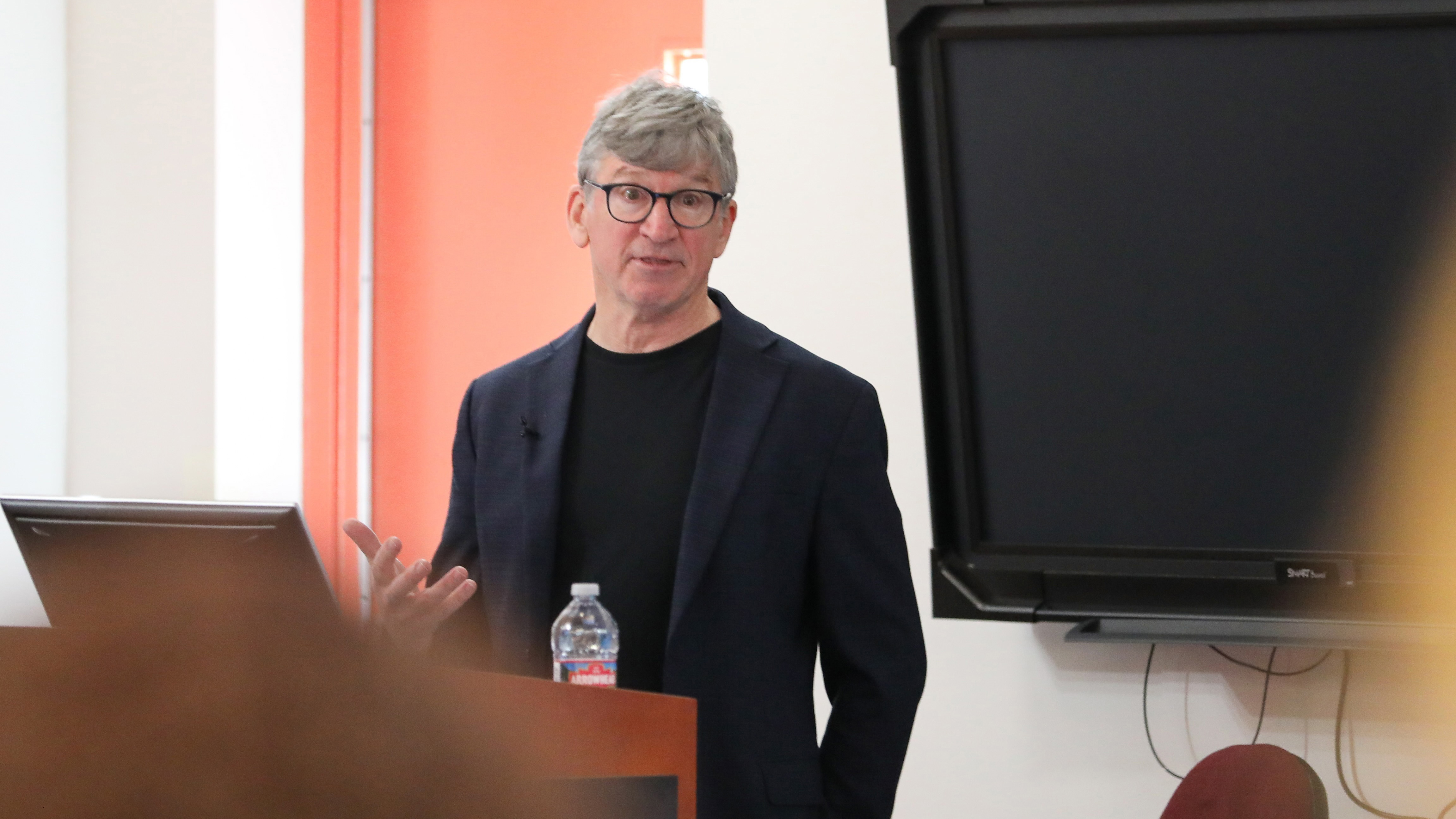Law Seminar Encourages Dialogue and Ideas Around Israel and Palestine

Months before the current peace plan started taking shape in the Middle East, solutions to the Israel-Gaza conflict were percolating in LMU Loyola Law School (LLS) classrooms.
It all began with lunch – or rather, several lunches. Professor David Glazier felt that as an educational institution, LLS should be facilitating dialogue and sharing knowledge on campus. So he developed and hosted a series of lunchtime talks, open to anyone, about the International Criminal Court case concerning Gaza and other related international law topics. “The talks were not about taking sides, but just to explain things. They were incredibly well-received,” Glazier said. “That inspired me to think we could actually have an actual course on the subject.”
The current war in Gaza exposed a curricular gap: a lack of educational content available to help students learn about the Israel-Palestine conflict. That inspired Glazier to propose the seminar “Israel-Gaza: Mediating a Two-State Solution.” The law school was immediately supportive, said Glazier, a former surface warfare officer in the U.S. Navy who teaches classes such as International Law and Law of War.
The unique course structure – a weekly, three-hour evening seminar not subject to the school’s normal grading curve to help ensure students didn’t worry their grade was dependent on their viewpoints – was approved. The administration even constructed a new classroom in Rains Library to accommodate the class, which debuted in spring 2025 with 10 students and an interdisciplinary, holistic approach.
The course began with a series of lectures about the history and background of Israel, Palestine, and the current war in Gaza. Then, students completed their own research projects and presented them to the class. In the final session, students collaborated on endeavoring to devise a workable two state solution.
Glazier personally communicated with each student who enrolled in the seminar to explain the course and make sure they knew he was not going to favor one opinion over another and that he was going to be learning alongside them. “I tried to be clear to the students right from the start that: (a) I think the topic is important; (b) I think I can be open-minded on it; and (c) I’m as interested in learning about it as you are. So it’ll be a collaborative learning experience,” Glazier said.
The class welcomed Zoe Hernandez, a mediator from the Loyola Center for Conflict Resolution, to lead the students in an exercise on collaborative resolution. It featured guest lectures from Rabbi Phil Graubart of the Academy for Jewish Religion, California; and Professor Amir Hussain, an LMU professor of theology who is an expert on Muslim relations with the West.
A third-year student who preferred to remain anonymous said he wanted to take the seminar because he has a personal connection to the conflict and wanted to challenge himself to better articulate his ideas and engage in difficult dialogue with his peers.
Being able to engage in healthy dialogue about difficult world events is an important skill for all law students and future lawyers, he said.
“The most useful thing I’ve learned is that the best way to approach a controversial issue with someone who is very much on the opposite side of you is to listen and try to understand where they are coming from,” he said. “By listening and asking questions, you can better understand the areas of disagreement and, more importantly, realize that there are many more things you can agree on than disagree.”
Charlotte Taormina ’26 said she feels lawyers have a responsibility to understand and confront injustice. Taking the course has shown her that LLS is willing to stand for critical engagement and intellectual honesty.
“Offering this seminar in the midst of such a politically charged climate shows a commitment to the truth, justice, and the training of future lawyers who are unafraid to challenge power,” she said.
For Glazier, teaching the class highlighted how important it is for institutions of higher education to provide opportunities for dialogue. At law schools especially, students must be able to think critically about the facts and practical realities of current events and other difficult subjects. He’s proud that his students did just that.
“At a time when other campuses have been torn apart by dissent over the issues, we managed to bring together a group of students for a very positive experience,” Glazier said.